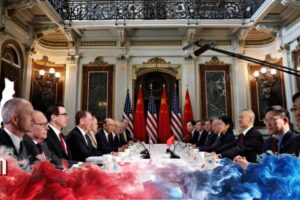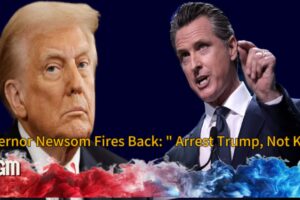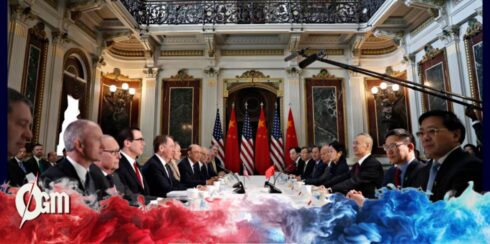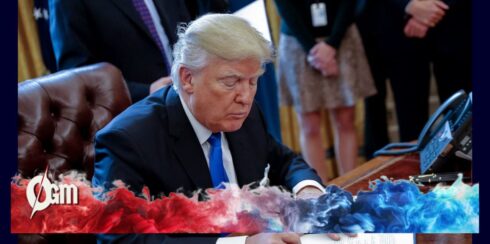Donald Trump has made a strategic political move by naming Massad Boulos, the father-in-law of his daughter Tiffany, as an adviser on Arab and Middle Eastern affairs for his potential incoming administration. This appointment marks the second instance of Trump selecting an in-law for a key advisory role, following his earlier selection of Charles Kushner, Ivanka Trump’s father-in-law, as the potential ambassador to France.
Boulos’s appointment comes with significant political implications, particularly in the context of the ongoing Israel-Gaza conflict. During the campaign, he played a crucial unofficial role in courting Arab American and Muslim voters, addressing their growing frustration with the current administration’s foreign policy stance. By positioning himself as a bridge between Trump’s campaign and these demographic groups, Boulos has demonstrated a keen understanding of the complex political landscape surrounding Middle Eastern relations.
Trump Campaign Strategy and Voter Engagement
The Lebanese American businessman emerged as a key figure in Trump’s campaign strategy, specifically targeting Arab American and Muslim voter demographics. By promising potential Middle East peace and criticizing the current administration’s handling of international conflicts, Boulos exploited a significant vulnerability in the opposing campaign’s support base. His messaging centered on the argument that a strong presidential leadership could prevent ongoing humanitarian crises.
Trump himself highlighted Boulos’s contributions, describing him as “instrumental in building tremendous new coalitions with the Arab American community” and praising his commitment to Republican and Conservative values. This strategic positioning allowed the campaign to differentiate itself from competing political narratives, particularly regarding the Israel-Gaza war and broader Middle Eastern geopolitical tensions.
Background and International Connections
Boulos brings a unique international perspective to his advisory role, rooted in his Lebanese heritage and diverse political connections. Born in Lebanon and having moved to Texas as a teenager, he has cultivated relationships with various political factions in his birth country. Of particular note are his reported connections with Sleiman Frangieh, a Christian Lebanese politician aligned with Hezbollah, and his meeting with Palestinian Authority leader Mahmoud Abbas during the United Nations General Assembly.
His professional background is equally diverse, with involvement in his family’s billion-dollar Nigerian business specializing in vehicle and equipment distribution. Notably, Boulos’s advisory role does not require Senate confirmation, providing Trump with flexibility in implementing his foreign policy strategy. This appointment underscores the campaign’s nuanced approach to Middle Eastern diplomacy and voter engagement.
Potential Impact and Future Implications
The selection of Boulos represents a calculated attempt to reshape perceptions of Trump’s foreign policy approach, particularly among Arab American and Muslim voters. By positioning an insider with international connections as an adviser, the campaign signals its intention to present a more nuanced and inclusive diplomatic strategy.
While the full extent of Boulos’s advisory role remains unclear, his previous informal liaising with Middle Eastern leaders suggests he will play a significant behind-the-scenes diplomatic function. His ability to communicate Trump’s vision for global conflict resolution, particularly in the context of the Israel-Gaza war, could prove crucial in the campaign’s broader international strategy.
The appointment highlights Trump’s continued preference for trusted personal and familial networks in key strategic roles, a approach that has characterized his previous administrative selections. As the political landscape continues to evolve, Boulos’s role will likely be closely watched by political analysts and international observers alike.
Implications for the Trump Administration
Mr. Boulos’ appointment reflects Trump’s strategic emphasis on Middle Eastern affairs. As tensions continue to escalate in the region, the new adviser’s connections and understanding of Arab and Muslim communities will likely shape U.S. foreign policy in critical ways.
While critics may view the appointment as nepotistic, supporters argue that Boulos’ experience and alignment with Trump’s goals make him an ideal choice. With peace in the Middle East a central campaign promise, his role could be instrumental in advancing Trump’s agenda, potentially solidifying support from Arab American voters in the process.
In appointing Massad Boulos, donald reaffirms his focus on Middle Eastern policy, signaling a desire to address longstanding conflicts and rebuild U.S. relations in the region. Whether Boulos’ influence will yield tangible outcomes remains to be seen, but his appointment has already sparked discussions on the evolving dynamics of donald’s administration.














